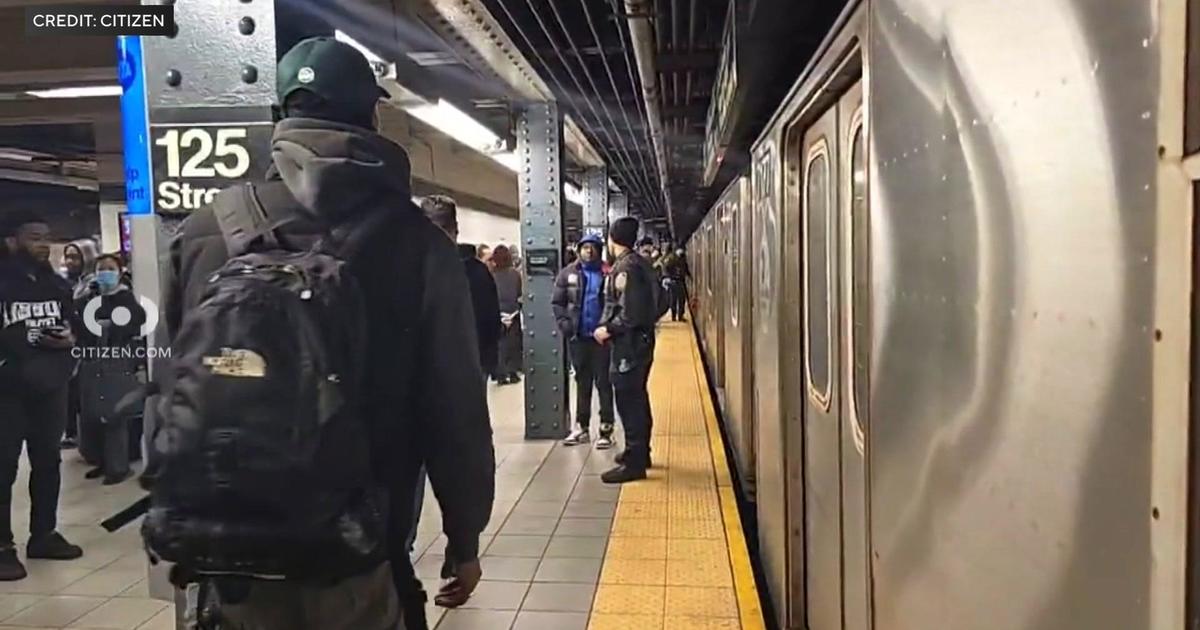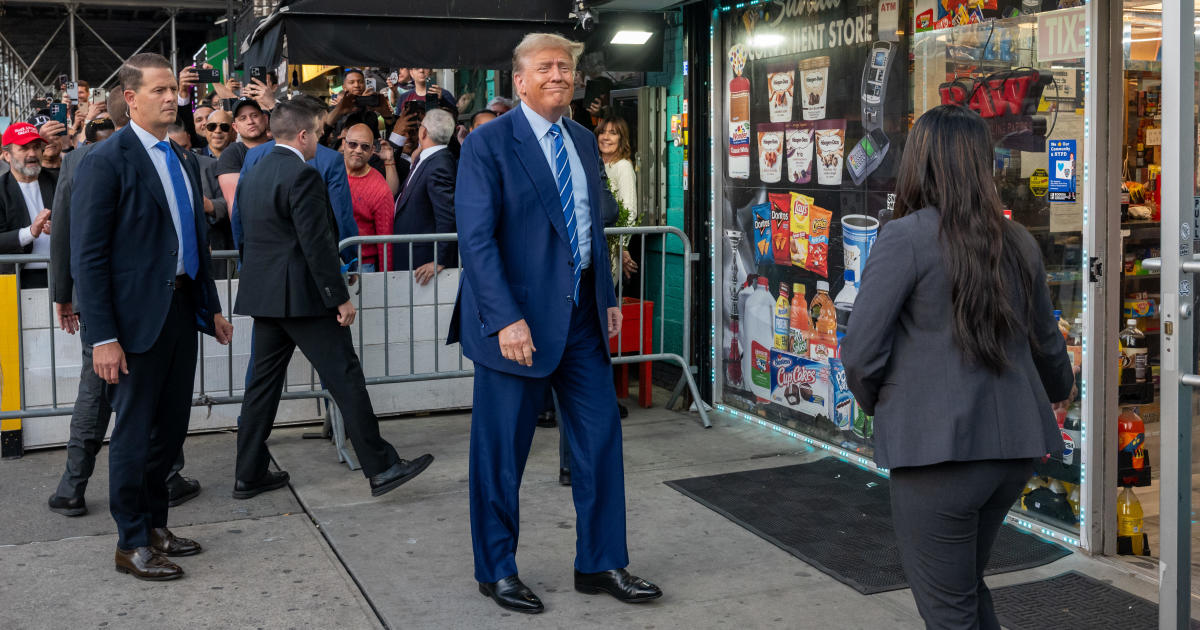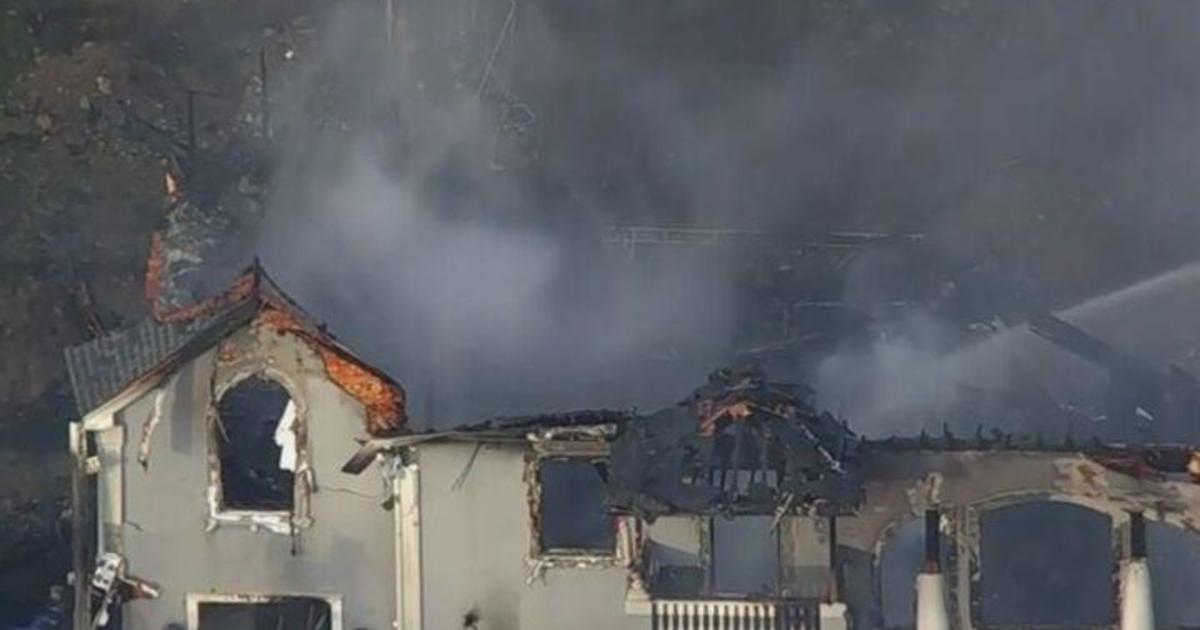Obama Delivers West Point Commencement Address, Calls For Restrained Use Of U.S. Military
WEST POINT, N.Y. (CBSNewYork/AP) -- President Barack Obama delivered the commencement address Wednesday morning at West Point.
Obama struck out at his critics, using the address to unveil a new global anti-terrorism policy with America leading the way.
Obama has been stung by criticism that under his stewardship, America has squandered its global leadership, CBS 2's Marcia Kramer reported. Obama went to West Point to take back the mantle of superpower relevancy while sidestepping what he called "costly errors."
"Those who... suggest that America is in decline, or has seen its global leadership slip away, are either misreading history or engaged in partisan politics," Obama said.
The speech came one day after the president laid out plans for withdrawal from Afghanistan, leaving only an embassy and its security detail by 2016.
Obama said he will ask congress to redirect resources into a $5 billion counterterrorism fund to train and equip other nations in a U.S.-led war on violent extremism and terrorist ideology, Kramer reported.
"Here's my bottom line: America must always lead on the world stage. If we don't, no one else will," Obama said.
The president's speech at West Point came after his decision to withdraw troops from Afghanistan was roundly criticized by Republicans and some liberal voices.
"The president's decision to set an arbitrary date for the full withdrawal of U.S. troops in Afghanistan is a monumental mistake and a triumph of politics over strategy," said Sens John McCain, Lindsay Graham and Kelly Ayotte.
Congressman Peter King told Kramer he's "disgusted" with the president's foreign policy.
"The president's foreign policy has been one failure after another. Afghanistan, he's pulling the troops out and is going to do it in such a way to allow al Qaeda to come back in. The answer is to get a new commander-in-chief," King said.
The Washington Post has in recent months panned the president's foreign policy decisions as "consistently bad."
"Iraq has slid into something close to civil war, with al Qaeda retaking territory that U.S. Marines once died to liberate," wrote the Washington Post editorial board. "In Syria, al Qaeda has carved out safe zones" (that senior U.S. officials warn will be used as) staging grounds for attacks against Europe and the United States. Libya is falling apart."
Sources told Kramer the driving factor in the president's speech was a deep frustration with the belief of critics that the Obama administration lacks the credibility to stop international foes, like Russian President Vladimir Putin's drive to annex parts of the Ukraine.
"The United States is the one indispensable nation that has been true for the past century and will likely be true for the century to come," Obama said.
Obama argued for restraint before embarking on more military adventures.
Standing before the newest class of officers graduating from the U.S. Military Academy, Obama said, "I would betray my duty to you, and to the country we love, if I sent you into harm's way simply because I saw a problem somewhere in the world that needed fixing, or because I was worried about critics who think military intervention is the only way for America to avoid looking weak."
Even as the U.S. emerges from the two wars that followed the Sept. 11, 2001, attacks, Obama said terrorism remains the most direct threat to American security. But he argued that as the threat has shifted from a centralized al Qaeda to an array of affiliates, the American response must change, too.
Rather than launching large-scale military efforts, Obama called for partnering with countries where terrorist networks seek a foothold.
Obama cast the bloody civil war in Syria as more of counterterrorism challenge than a humanitarian crisis. He defended his decision to keep the U.S. military out of the conflict but said he would seek to increase support for the Syrian opposition, as well as neighboring countries including Jordan, Lebanon, Turkey and Iraq that have faced an influx of refugees and fear the spread of terrorism.
"In helping those who fight for the right of all Syrians to choose their own future, we also push back against the growing number of extremists who find safe haven in the chaos," Obama said.
One plan being considered by the White House is a project to train and equip members of the Free Syrian Army on tactics, including counterterrorism.
Obama was greeted by cheers from the graduating cadets when he noted that they had the distinction of being "the first class to graduate since 9/11 who may not be sent into combat in Iraq or Afghanistan."
Even as he heralded the end of those two wars, Obama said the U.S. would continue to use military force on its own "when our core interests demand it -- when our people are threatened, when our livelihood is at stake, or when the security of our allies is in danger." He also continued to defend his use of drone strikes in places like Yemen and Somalia but called for increased transparency about the program that has long been shrouded in secrecy.
But a centerpiece of Obama's address was a defense of his preference for acting as part of an international coalition instead of pressing ahead alone. He challenged skeptics who see that approach as a sign of weakness and argued instead that it instead highlights America's ability to lead on the world stage.
Obama cited recent efforts to rally European support for sanctions against Russia after the Kremlin annexed the Crimean Peninsula from Ukraine. While the president insisted that Russia is now isolated, Obama's critics contend that his inability to stop Putin from taking Crimea in the first place was a sign of weakness.
Obama also praised ongoing diplomatic efforts between Iran, the U.S. and its negotiating partners -- Germany, Britain, France, China and Russia -- that aim to strip the Islamic republic of its nuclear capabilities. While Obama said the odds of reaching an agreement are still long, he also said a diplomatic breakthrough would be "more effective and durable than what would be achieved through the use of force."
"Throughout these negotiations, it has been our willingness to work through multilateral channels that kept the world on our side," he said.
You may also be interested in these stories:
(TM and © Copyright 2014 CBS Radio Inc. and its relevant subsidiaries. CBS RADIO and EYE Logo TM and Copyright 2014 CBS Broadcasting Inc. Used under license. All Rights Reserved. This material may not be published, broadcast, rewritten, or redistributed. The Associated Press contributed to this report.)



